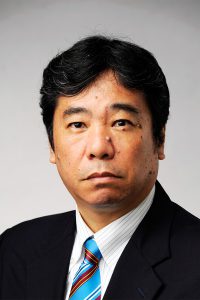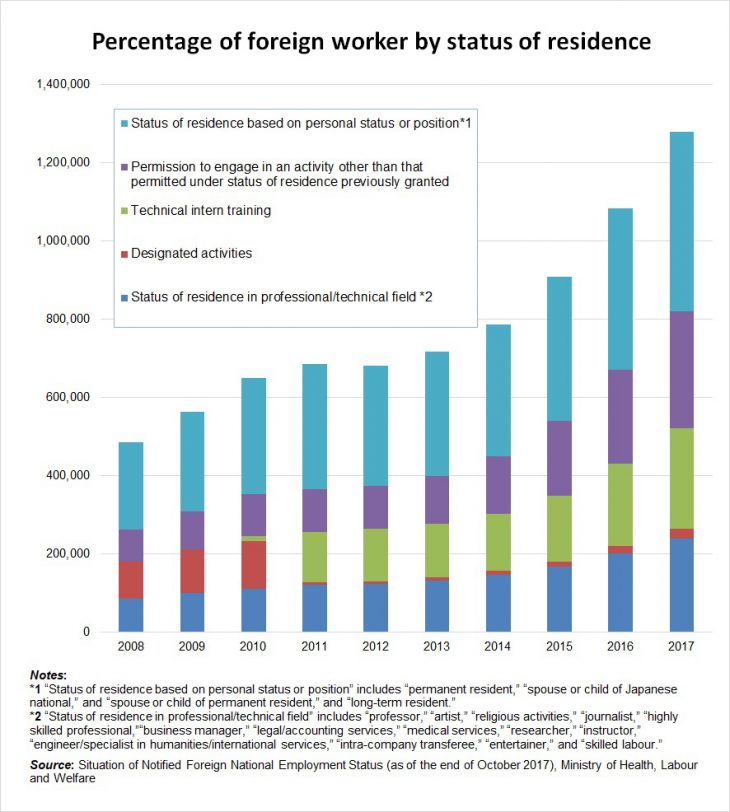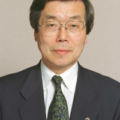Focal points of the discussion on the expansion of the acceptance of foreign workers: The need to improve productivity should be highlighted instead of making numerical adjustments
Key points
- There is concern that efforts to improve productivity will be put on the back burner due to increased acceptance
- An increase in the number of foreign residents has little negative impact on the workers of the country in which they work
- Efforts should be made to enhance welfare support and review employment practices

Prof. Kato Hisakazu
The Government has submitted a proposal to the Diet to revise the law on immigration control with a view to expanding the acceptance of foreign workers. It is not unusual for us to see foreigners working at convenience stores and izakaya pubs in town. Given the aging population, what needs to be urgently addressed is the acceptance of foreigners who engage in nursery services. In addition, with concern about the workforce shortage continuing into the future as a result of the declining population, an increase in the number of foreigners is expected to help curb the decrease in the number of workers.
However, it appears that we are discussing the issue of why we should depend more on foreigners without clarifying it from either the short-term or the long-term perspective.
According to a population estimate made by the National Institute of Population and Social Security Research, the population of people aged between 20 and 64 will decrease by more than 40% from 71.23 million in 2015 to 41.89 million in 2065. Until the early 2000s, the conventional thinking was that a decrease in the population would be controlled by encouraging the participation of women and elderly people. Recently, there has been growing interest in solutions through the efforts of using foreigners, artificial intelligence (AI) and robots, among other means.
Looking at previous economic growth rate based on three production factors — capital, workforce and the total factor productivity that reflects other elements such as technological progress — we see improvements in productivity contributing primarily to the growth of the Japanese economy on a long-term basis. The contribution made through a workforce increase is considered to be relatively insignificant. A decline in the population may lead directly to a decrease in demand. Even so, what is important from the perspective of economic growth is how highly skilled workers can be acquired, instead of making quantitative adjustments in line with such a decline in the workforce.
The number of foreign residents in Japan at the end of June 2018 was 2,637,000, or 2% of the total population. While the number of foreign residents has been increasing rapidly in recent years, the ratio of persons born in foreign countries to the country’s total population is the third lowest among the member countries of the Organization for Economic Development and Cooperation (OECD) after Mexico and Poland. This fact alone is not too provoking to justify the reason for accepting more foreigners. Nevertheless, there is no alternative but to further increase the number in consideration of the social trends that advocate globalization.
As of the end of October 2017, the number of foreign employees was 1,279,000, comprising those engaged in specialized and technical jobs (highly skilled professionals), technical intern trainees, and those engaged in activities other than those permitted under their residence status, such as students studying in Japan (please see the graph). Many of these foreigners, excluding those whose residence status is highly skilled professionals, seem to engage in unskilled labors. In particular, the number of technical intern trainees stood at 258,000.
Japan has been accepting the largest number of technical intern trainees of all OECD member countries. The acceptance of such unskilled foreign workers, including those who conduct activities other than those permitted under their residence status, such as students studying in Japan, has been contributing to solving temporary worker shortages in recent years. That said, discussions regarding highly skilled professionals are barely underway.
In the short term, we need to accept foreigners to make up for worker shortages from a quantitative perspective. In the long term, however, we should focus our attention on the qualitative aspects to accept individuals who support sustainable economic growth and contribute to improved productivity. Considering the possibility that standardized jobs will be replaced by AI or robots, we should accept highly productive individuals who engage in creative work from a long-term perspective.
Japan has been implementing points-based system for highly-skilled foreign professionals. Despite this, the race to acquire highly skilled individuals is intensifying because similar programs are being adopted in many countries. In addition, there is concern that initiatives for productivity improvement on a long-term basis will be put on the back burner due to the hasty acceptance of unskilled foreign workers as an immediate solution to the ongoing shortage of workers. Based on a strategy for long-term economic growth, we should accept highly skilled professionals while at the same time promoting other initiatives such as investment for productivity improvements, instead of compensating for the workforce shortage qualitatively.
The proposed measures for expanding acceptance are basically considered as the acceptance of unskilled workers. That said, is it appropriate to simply take any work under the category of Specified Skilled Worker (i) as unskilled? It is difficult to define the level of technical skills as unskilled. Is it proper to treat workers who have already completed five years’ technical training as unskilled workers? Going forward, we should work on creating an evaluation axis by referring to the points-based program.
The government rejects the possibility of implementing an immigration policy. This rejection is reflected in conditions that prohibit workers under the category of Specified Skilled Worker (i) from bringing their family members and obligate them to return to their country after the period of their stay is over. On the other hand, workers under the category of Specified Skilled Worker (ii), who are considered to be workers with seasoned technical skills, are allowed to stay for a long period of time, as are the family members accompanying these workers. What should be a focal point of the discussion, however, is not whether or not an immigration policy will be implemented but whether or not these workers are individuals who can contribute to economic growth in the long term. They should be evaluated from different viewpoints from those focused on measures for dealing with the ongoing shortage of human resources.
Some people argue that the acceptance of foreign workers has an unfavorable impact on competing Japanese workers (a decrease in wages or an increase in unemployment rates). On the contrary, based on empirical studies conducted so far, it is generally considered that the acceptance of foreign workers does not have any significant impact on the working conditions of the country that accepts them (the International Migration Outlook 2016 by OECD, etc.) Even if there is any impact on the workers of the country that accepts them, efforts should first be made to provide technical training to enhance the productivity of the receiving country, instead of trying to avoid accepting foreign workers.
An increase in the number of foreign residents may create burdens for reasons other than the implementation of an immigration policy. Such burdens affect a variety of factors, including financial, educational and security conditions. Even so, in terms of financial conditions, for example, these foreigners may contribute to society through the payment of taxes and social insurance premiums in the long term, although medical, welfare and other benefits will increase in the short term. (Study by George Borjas, Professor at Harvard University in the United States and other sources)
If the birthrate is expected to rise due to the acceptance of foreigners, measures should be taken for childcare and other services. Still, from a long-term perspective, their children will fulfill the burden of paying taxes after they become adults. The burdens should not be uniquely highlighted, although the situations may vary depending on the assumption of how long such burdens will be borne down the road.
In terms of education, the burden of those working in the educational field is expected to increase significantly due to the need to teach Japanese and provide compulsory education for foreigners’ children. However, it is the result of natural developments toward globalization, which should be considered as a good opportunity for Japanese children to learn diverse cultures and habits, from a forward-looking perspective.
In addition, issues related to the maintenance of public order and the disappearance of technical intern trainees may be avoided through initiatives to promote the efforts of coexisting with foreigners and including them socially. Although strict measures should be applied to illegal stays, we should not discuss whether or not to accept foreigners by focusing on this problem alone.
The workforce shortage is expected to be more apparent in other countries by the middle of the twenty-first century, including those in East Asia and Southeast Asia, further intensifying efforts to acquire individuals with high-level skills going forward. Does Japan really continue to be a country where such individuals choose to stay? It is essential to create an environment that makes highly skilled foreigners choose to stay in Japan on a long-term basis.
In doing so, we should not spare efforts to enhance welfare support for foreigners, review employment practices that are not common internationally, and accept diverse cultures and values on a social basis. Japanese society must be globalized to become a country that is chosen by foreigners.
In addition, it is important to retain foreign students studying in Japan and utilize them as excellent human resources. Although many foreign students are studying in Japan under the Plan for 300,000 Exchange Students, only about 30% of them have shown interest in finding a job in Japan so far. The Ministry of Justice has stipulated a policy of expanding residence status to broadly cover exchange students who wish to obtain jobs in Japan. It is also necessary to make Japan into a country that is chosen by exchange students.
Translated by The Japan Journal, Ltd. The article first appeared in the “Keizai kyoshitsu” column of The Nikkei newspaper on 26 November 2018 under the title, “Gaikokujinrodo ukeirekakudai no ronten (1): Kazuawase yori seisansei jushi (Focal points of the discussion on the expansion of the acceptance of foreign workers: The need to improve productivity should be highlighted instead of making numerical adjustments).” The Nikkei, 26 November 2018. (Courtesy of the author)
Keywords
- aging population
- declining population
- workforce shortage
- nursery service
- technical intern trainee
- exchange student
- unskilled foreign worker
- Specified Skilled Worker
- Plan for 300,000 Exchange Students





